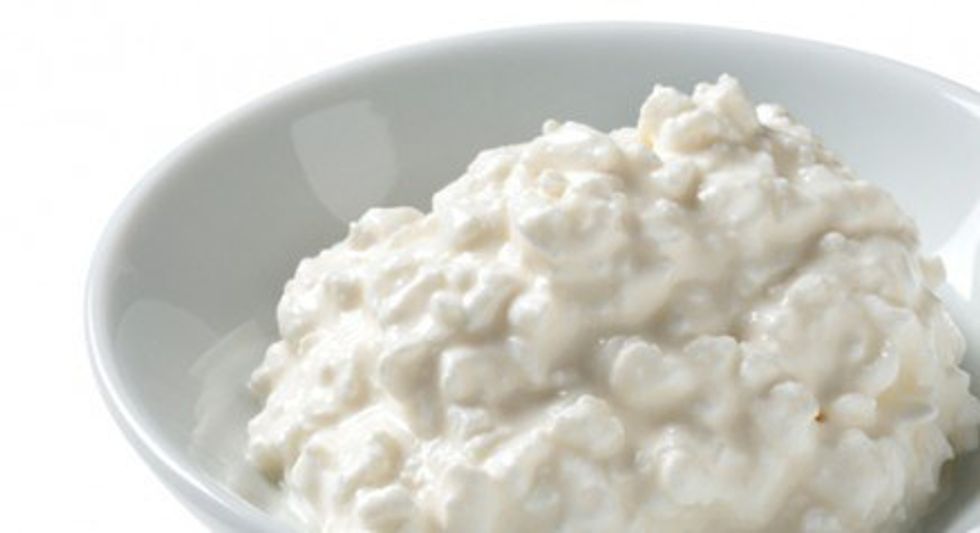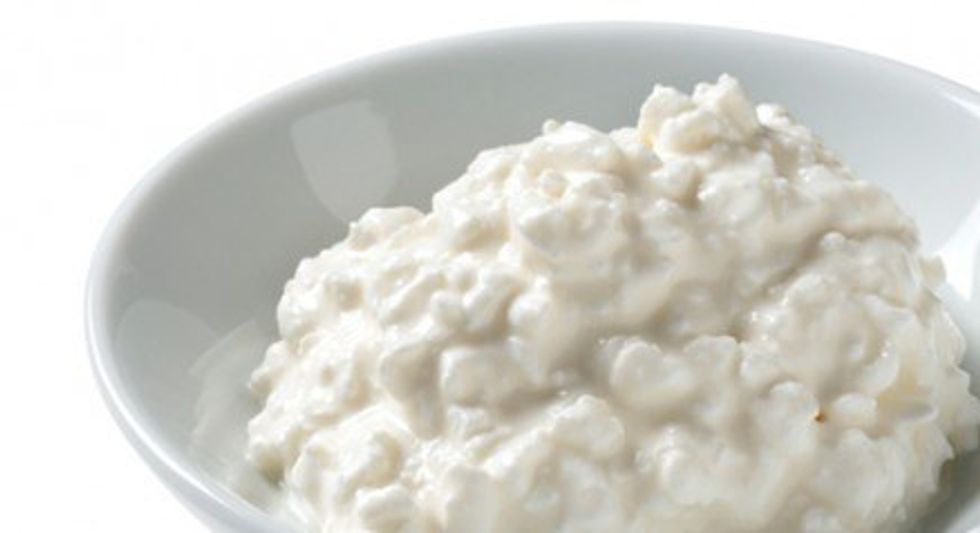In fifth grade, the boys and girls were divided and put into separate classrooms for an afternoon. A dark-haired, thin woman in sharp heels and a pencil skirt set up an overhead projector, and the first transparency she slapped on made the whole room hum with uncomfortable giggles.
She was showing us a vagina.
Well, not just the vagina. It was an illustrated reproductive system. Still, none of us had ever mentioned our private parts and were told never to discuss them in public, so this felt like breaking the rules. It was very exciting.
The woman named the various parts, how they functioned and what we would experience with them in as soon as a few months. She told us about menstruation and how to stay clean during our periods and how that meant we could get pregnant. The already thick air became foggy with discomfort. What she moved onto next is what I'm going to discuss in this post--yeast infections.
The tall, dark-haired woman pulled the corners of her mouth up for less than one second before they turned downward again. "When a young woman gets a yeast infection, her private parts become very itchy and develop a bad smell. Then the stuff that regularly comes out--that's discharge, or cervical mucus--turns thick and white, like cottage cheese. If this happens to any of you, tell your mom and she will help you get the medicine you need to make it go away."
What? Cottage cheese will fall out of my vagina!? I hadn't even begun getting discharge! Here is what I'm sure every girl in that room pictured:
Then, here is what most people who have vaginas picture:
And guess what cottage cheese discharge actually looks like? You guessed it! Not like the cottage cheese you eat. I mean, kind of, but not really. And it's silly that until writing this article I had no idea what healthy or unhealthy discharge looked like! I've had a vagina for almost 21 years and have had discharge for almost eight and have been ignorant. No wonder some people have yeast infections for years. And as my friend said to me while I wrote this: "If that came out of my vagina, I would just lie on the floor and wait for death."
People hear about people who have had yeast infections for years and mock them--how could you not tell that your vagina is infected? But the problem is that we aren't told what healthy cervical mucus looks and smells like, so how could we spot when it isn't? With so many kinds of vaginas and lifestyles out there, there isn't just one "normal," so if a person's discharge seems weird, they just assume it's their version of normal.
That being said, here is a crazy helpful diagram I found that shows the different kinds of normal, healthy cervical mucus:
And look! There is even a small box in the bottom corner to give some general signs of vaginal infections.
Your cervical mucus will change throughout your menstruation cycle as you get closer to then further away from ovulating. The closer you are to ovulating, the thicker and whiter the mucus. And this is a relief, because then we know that there's nothing wrong "down there" (I used to think that thick discharge meant there was something wrong), our bodies just change every day! So, thankfully, because vaginas are amazing and take great care of themselves, your discharge is probably normal.
But, what if it isn't?
A friend of mine found out hers hasn't been normal for almost four years. She was also regularly itchy around her vaginal opening, but it never had a really bad smell. She thought her discharge was fine, and that's why I'm writing this! Because we are given one standard of how the vagina is supposed to be (fyi, back in the day the "28 day menstrual cycle" was made by men with no surveying of the women who actually menstruated), but then told that each person's body will be a little different, with no discussion of just how different it can be before there is something wrong.
With that in mind, here are signs that you may have a yeast infection:
Itching, irritation, and redness around the vagina.
Whitish-gray, thick, and having a consistency similar to cottage cheese and may smell bad.
Burning and/or pain when urinating or with sex.
When I searched for an image of what cottage cheesy discharge looks like I only saw pictures that I probably wouldn't be able to post on here. Frankly, none of you would want to see it either. I felt weird seeing some of them. However, if your discharge doesn't look like any from the above chart please look it up yourself and read about it. (Remember that Google Images isn't super reliable.)
It can be dangerous to have a yeast infection for years, or to have many yeast infections within a year for several years. The infection can become systematic or can cause infertility. It takes at least a few years before it can reach this level, and there is no guarantee that it will, but you should always examine yourself because it's not worth the risk. The medicine is inexpensive, and there are many homeopathic remedies to choose from.
That moves this article to the final category-- homeopathic remedies for yeast infections. While the evidence is inconsistent, many people find that yogurt and probiotics help prevent and cure their yeast infections. You can either take oral probiotics or insert them directly into your vagina (if you have the infection). If you choose yogurt, make sure it has no added sugar; you can eat it, or freeze it in small capsule shapes or fill an empty tampon applicator to insert it into your vagina if you currently have the infection. Diluted tea tree oil on tampons inserted into your vagina as you sleep has worked for many people.
Potassium sorbate is a potent fungicide used in preserving food and making beer, and when diluted, can be soaked up by a cotton ball or tampon applicator and inserted into your vagina. You can find it in some natural food stores. Also, never douche. Douching can actually increase the likelihood of contracting a yeast infection or make a current infection worse. Douching just isn't good in general.
So that's all I have for you! Remember to talk to a doctor if you have or think you may have an infection, and I hope this post made you feel better about your bits.
Do you have any tips or remedies that work for you?

























